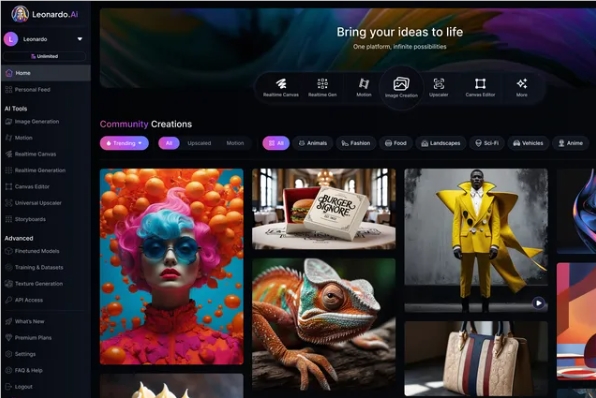Canva announced the acquisition of Australian generative AI startup Leonardo.ai, a move aimed at enhancing its visual AI tool suite and further enhancing its competitiveness in the design field. Financial details of the acquisition were not disclosed, but Canva will gain access to Leonardo.ai’s suite of advanced text-to-image and text-to-video generators, technologies that will be quickly integrated into Canva’s existing Magic Studio product. This move is seen as a strategic step for Canva to compete with industry giants such as Adobe, aiming to provide users with more powerful AI design tools, thereby improving user experience and expanding market share.
Canva co-founder Cameron Adams said Leonardo.ai will continue to operate as a standalone product. Canva hopes to enhance its technical strength through acquisitions while providing users with more comprehensive design solutions. Leonardo.ai’s model training data source has also been disclosed, which responds to the industry’s concerns about data security and privacy to a certain extent. Still, Canva needs to be cautious about potential concerns from creators to maintain its brand image and market credibility. The acquisition of Canva heralds a future in which design tools will become more intelligent and convenient, and Canva will be well-positioned in this change.
Online design platform Canva has announced plans to acquire Australian generative AI content and research startup Leonardo.ai as part of its goal to build a "world-class visual AI tool suite." Although financial terms of the deal were not disclosed, Canva will gain access to Leonardo.ai's suite of user-customizable text-to-image and text-to-video generators.
Canva co-founder Cameron Adams said in the announcement that Leonardo.ai will "continue to offer development of its web platform as a standalone product," similar to the Affinity creative software suite Canva acquired in March. Leonardo.ai's technology and Phoenix base model will also be "quickly" integrated into Canva's existing suite of Magic Studio products, such as the Magic Media image and video generator.

Canva has been working to diversify its platform by adding office suite-like tools, but the visual design and communications platform remains one of the biggest competitors to Adobe's creative software product line. The Affinity acquisition could help Canva compete with software like Adobe's Illustrator, Photoshop and InDesign, while Leonardo.ai could similarly be positioned as an alternative to Adobe's Firefly generative AI models.
Leonardo.ai told TechCrunch that its models are trained using "licensed, synthetic, and publicly available/open source data," which is vaguer than Adobe's training disclosure for Firefly. Still, Adobe suffered a recent backlash over a policy update that forced it to make it clear that user data would not be used to train the company's generative AI models. Canva has an opportunity to position itself as a growing alternative, but it will need to proceed cautiously to avoid Adobe-like scrutiny from creators who have similar reservations about generative AI.
Through this acquisition, Canva not only expanded its technical reserves, but also secured a more favorable competitive position for itself in the market. The addition of generative AI technology indicates that Canva will provide users with richer and more advanced creative tools, further consolidating its influence in the design field.
Canva's acquisition of Leonardo.ai marks the further deepening of its strategic layout in the field of AI-driven design. It will bring users a more powerful and convenient creative experience in the future, and will further intensify competition with competitors such as Adobe. Shaping the landscape of the design industry.